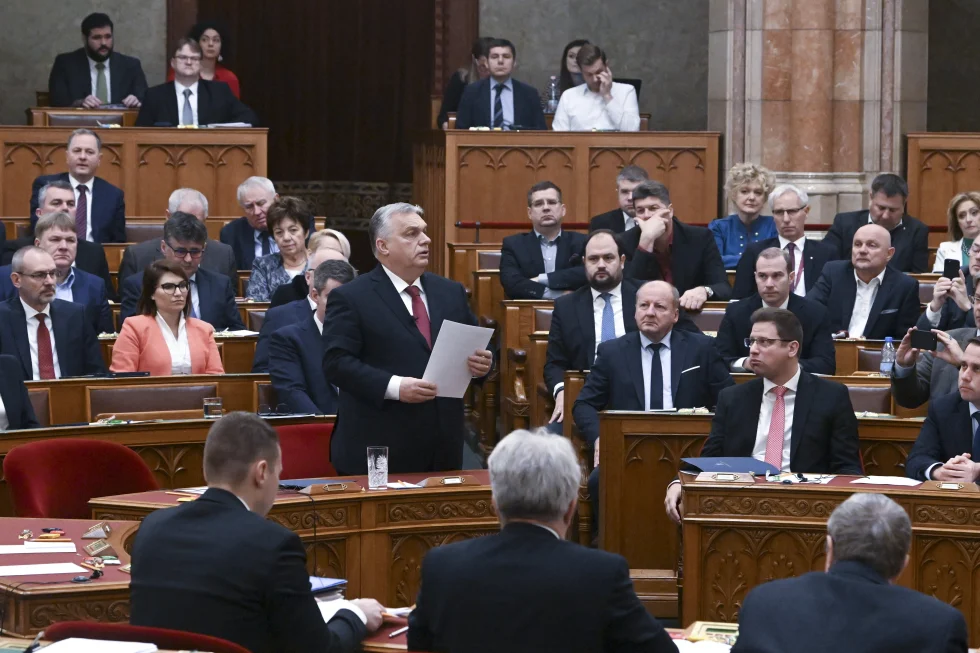In a move that has garnered widespread criticism from independent media outlets, rights groups, and international organizations, Hungary’s coalition government, led by Prime Minister Viktor Orbán, has approved the “sovereignty protection act.” The legislation, which some critics liken to Russia’s “foreign agent” law, grants authorities the power to investigate and prosecute individuals and groups accused of undermining the country’s sovereignty.
The “sovereignty protection act” paves the way for the establishment of a new government authority tasked with gathering information on entities benefiting from foreign funding and those influencing public discourse. Hungary’s secret services are mandated to cooperate with this authority, and violations of the law may result in prison terms of up to three years.
Opponents argue that the law’s broad language could be exploited to target government critics arbitrarily. They also raise concerns about Prime Minister Orbán’s perceived consolidation of media control and the development of an autocratic political system that erodes democratic norms.
Representatives of ten independent news outlets have penned an open letter denouncing the legislation. They vehemently reject the government’s accusations of “serving foreign interests” and assert their commitment to transparent reporting without hidden funds or subsidies.
While the Hungarian government contends that the law aims to prevent political parties from receiving foreign funding for election campaigns, critics argue that it jeopardizes fundamental human rights. Dunja Mijatovic, the Council of Europe Commissioner for Human Rights, urged Hungary to retract the bill, emphasizing its potential to stifle independent voices.
Furthermore, Hungarian non-governmental organizations, including Amnesty International, Transparency International, and the Hungarian Civil Liberties Union, have decried the law as a “political propaganda project” that violates Hungary’s constitutional, international, and EU obligations. They have pledged to pursue legal action and support targeted civil communities, activists, and media actors.
The passage of this controversial law comes amid ongoing tension between Hungary and the European Union. The EU has frozen funding to Budapest over concerns regarding democratic backsliding and the treatment of LGBTQ+ communities and asylum seekers. As the debate rages on, the future of democratic values and LGBTQ+ rights in Hungary remains uncertain.

